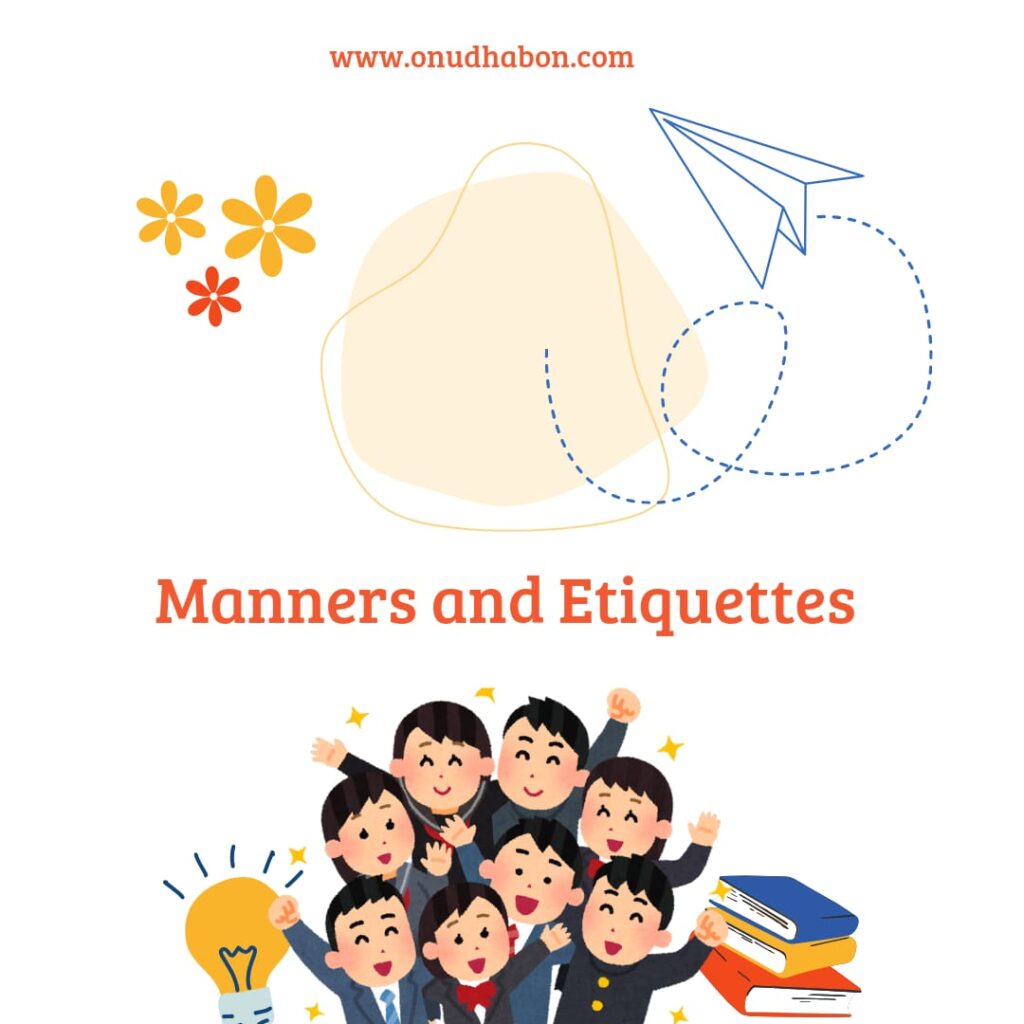
“Politeness is a sign of dignity, not subservience.”
Former US President Theodore Roosevelt
Manners and Etiquette are similar, but not the same. We might greet someone on the street by saying hello or good morning, which is an example of respectful manners. On the other hand, it seems like proper etiquette when you plan a meeting with someone and reach the meeting on a time. It truly has a positive effect on others.
The Japanese are known for being the world’s most polite and courteous people, and they place a high emphasis on societal manners and etiquette in their daily lives.In reality, the Tokyo Good Manners Project (TGMP) was founded in 2016 to promote and improve good manners and behavior in Tokyo through public manner awareness efforts. We’re going to discuss some really fundamental topics today that anyone can learn from a school going child to an adult.
1. Using nice words
Anything can eventually become a positive habit when we repeat it more and more . If we utilize the terms “please,” “thank you,” and “sorry,” the children in our care will pick up these courteous expressions as they get older. It helps individuals become more compassionate and understandable to others.These are short, courteous words that raise the standard of conversation.
3. Personal Space Awareness
Everyone should be aware of their own limitations and boundaries. It’s essential to develop a concept of personal space. Asking about someone’s earnings, marital status, and lots of other personal facts seems out of place and superfluous. This is purely a personal issue. No one should ever ask questions about this.
4. Listening Without Interrupting
It is our responsibility to teach our kids the value of listening attentively to what other people are saying.. When our children engage with people in the real world in the future, they will benefit from this learning. It might sound ridiculous! Still, it’s essential!
5. Good Table Manners
It is very important to have table etiquette when eating lunch. It is crucial to understand how to use cutlery, how to chew with your mouth shut, and how to chew silently. Cleaning the table after lunch, or any meal, is equally essential. These are the kind of positive habits that parents can encourage in their kids right away.
7. Being On Time
It is well known, Japanese people take great care to arrive on time. If you’ve ever gone to Japan, you know that the Metro train is always on schedule and never late. If you are late for your university class, you will soon find out that your professor is not happy with your time management. Knowing when to meet the deadline is also a question of etiquette.


